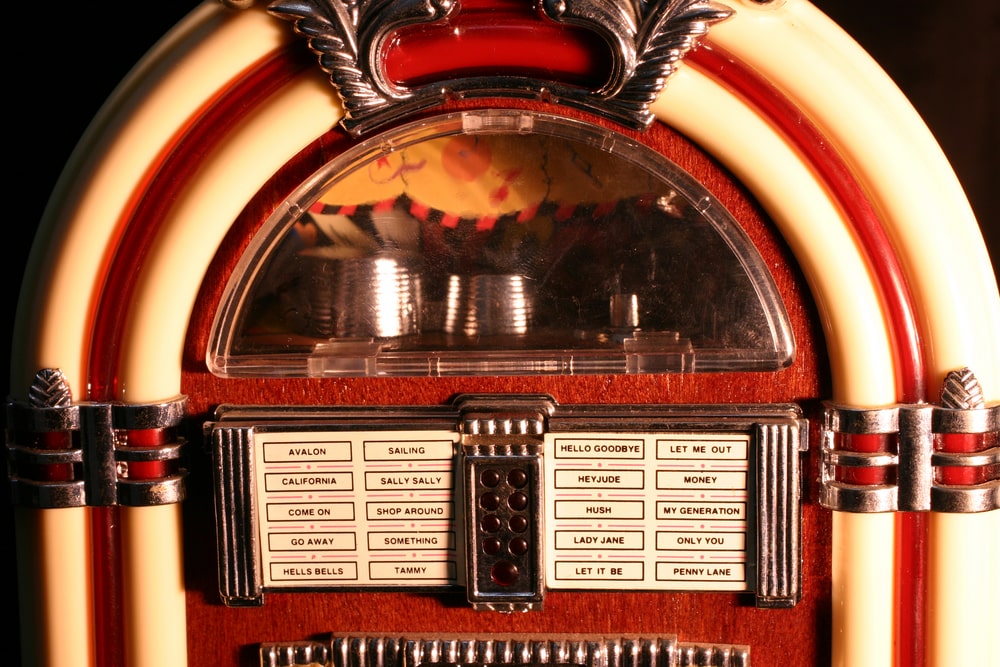
Music is powerful – it can help us express our emotions and open us up to feelings we’re avoiding. That’s why choosing the right songs for a funeral can make such a big impact on the service. Picking personalized music can help create a healing experience for you and your family.

Choosing your loved one’s favorite songs can be a great start, but you can also consider music from the decade they were born in – or a decade of music that they always enjoyed listening to. If you’re looking for music from the 1970s to incorporate into your loved one’s funeral or celebration of life, here are 9 songs you can try.
Bridge Over Troubled Water (Simon & Garfunkel, 1970)
When tears are in your eyes
I’ll dry them all
I’m on your side
When you lose a loved one, you may feel like you are alone. But funerals remind us that others are grieving the loss just like we are. “Bridge Over Troubled Water” highlights how we can find comfort in each other during difficult times. At a funeral or memorial service, this song could serve as a heartfelt reminder to help each other through the difficult days ahead.
Farewell My Friend (Dennis Wilson, 1977)
You take the high road
And I’ll take the low road
And we’ll meet again
Saying goodbye to someone you love is hard. In “Farewell My Friend,” Dennis Wilson captures the idea of saying farewell to someone you care about. But this song isn’t just about saying goodbye. It’s also about embracing hope for the future and believing that you will someday see your loved one again, which would make it a hopeful addition to a funeral or celebration of life.
Take Me Home, Country Roads (John Denver, 1971)
I hear her voice in the mornin’ hour, she calls me
The radio reminds me of my home far away
A song full of nostalgia and longing, “Take Me Home, Country Roads” is a classic for a reason. These heartfelt lyrics speak about the desire to be with a loved one who is far away. At a funeral or memorial service, this song can capture the longing you feel to see that person you love, especially if they were someone you called “home.”
Lean On Me (Bill Withers, 1972)
Sometimes in our lives
We all have pain
We all have sorrow
But if we are wise
We know that there’s always tomorrow
After the death of a loved one, you need the support of friends and family members. “Lean On Me” encourages us to lean on each other for support during difficult times. Plus, this song reminds us that there is hope to be found on the other side of grief and pain. Life will get better, and you can trust that there are times of hope and joy to come.
I Will Always Love You (Dolly Parton, 1974)
Bittersweet memories
That’s all I am taking with me
When you lose someone you love, they’re still a part of your life through your memories. This classic song beautifully captures how love continues even when someone is no longer a part of your life. While looking back on your time with your loved one may hurt right now, this song can remind you that you feel grief because you loved them so much.
Let It Be (The Beatles, 1970)
And when the night is cloudy
There is still a light that shines on me
Shine until tomorrow, let it be
A song about finding comfort during dark times, “Let It Be” reminds the grieving that there is hope on the other side of grief. While you may be tempted to run from your emotions, embracing your feelings and allowing yourself to feel sad or angry is an important part of the grieving process. In a way, this classic Beatles song can help everyone remember that it’s okay to let yourself feel those negative emotions.
Going Home (Annie Haslam, 1977)
Work all done, care laid by
Going to fear no more
A solemn song with surprisingly hopeful lyrics, “Going Home” speaks about reuniting with loved ones after death. While death can be a scary topic for many people, this song suggests that peace can be found in a life well-lived and that death provides a release from pain. If you’re looking for the hope of reuniting with your loved one, this song could make a great addition to a service or a memorial slideshow.
For a Dancer (Jackson Browne, 1974)
And somewhere between the time you arrive
And the time you go
May lie a reason you were alive
That you’ll never know
“For a Dancer” tells a beautiful story about the way people’s lives touch each other. Even though your loved one is gone physically, they live on in your memory and in the impact they made on their family and friends. This song is a reminder that you can find meaning in the positive impact you make in other people’s lives, which can give you hope for the future.
Bright Eyes (Art Garfunkel, 1978)
There’s a high wind in the trees
A cold sound in the air
And nobody ever knows when you go
After someone you love dies, you may ask yourself deep questions about life as you search for meaning. “Bright Eyes” captures the way you can feel lost after the death of a loved one. As you and your family mourn the loss, this song can be a reminder that it’s okay to ask questions and search for meaning.
Songs from other decades
- 10 Songs from the 1940s for a Celebration of Life
- 11 Songs from the 1950s for a Celebration of Life
- 10 Songs from the 1960s for a Celebration of Life





















